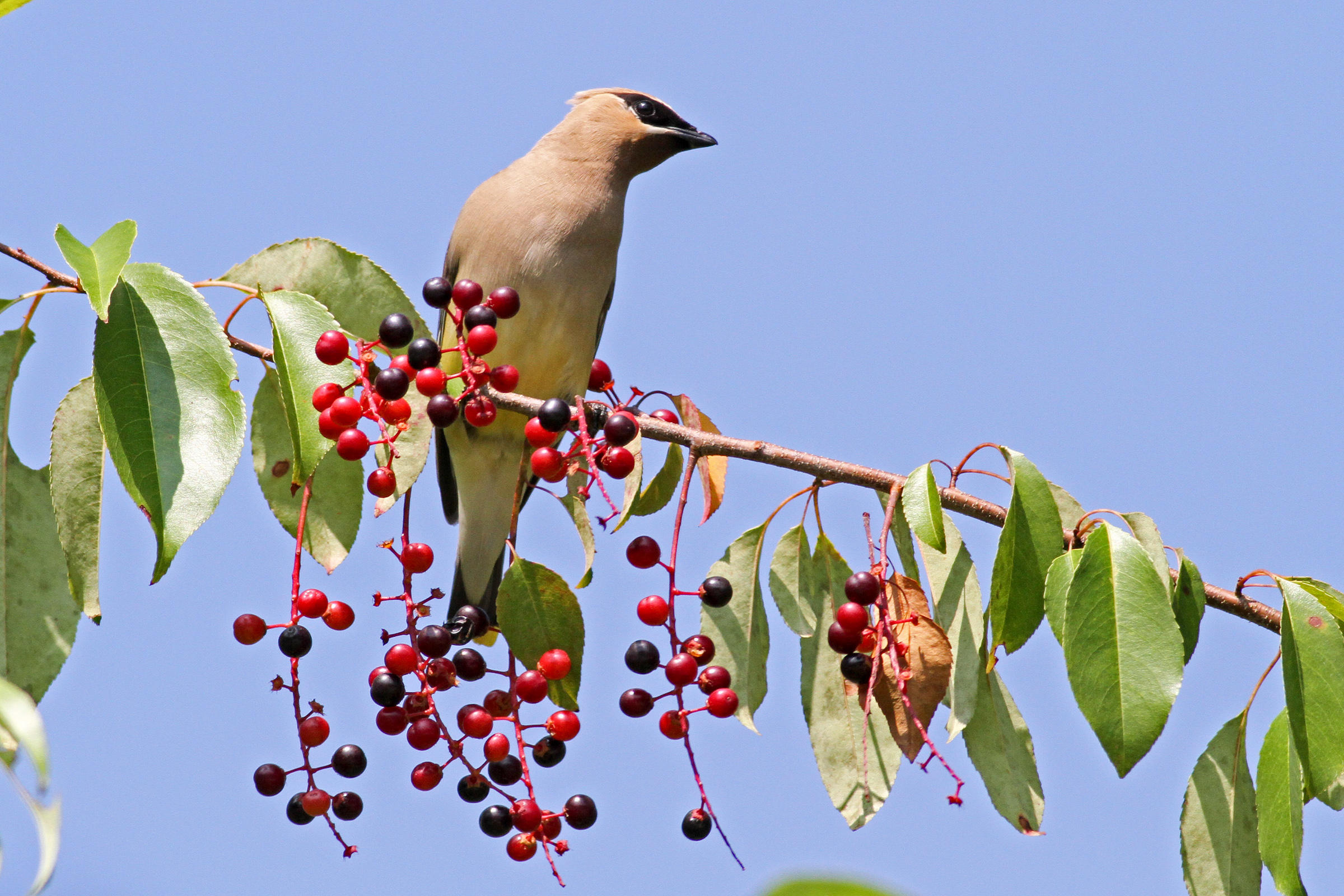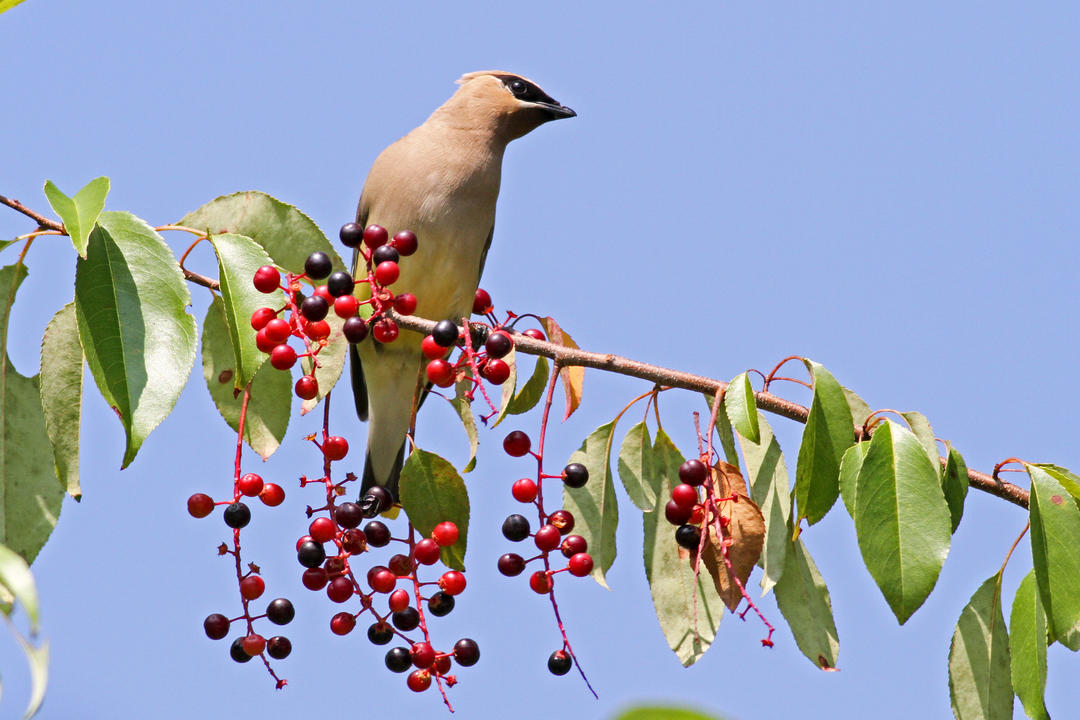Contact: Gwendolyn Causer, gcauser@audubon.org, 434-3068
Audubon Vermont Wins Grant from National Audubon Society for Burlington Native Plant Project
Huntington, VT (April 13. 2018) – Audubon Vermont announced today that it has won a grant to implement native plants projects in the City of Burlington. The grant application process was highly competitive and Audubon Vermont was one of 35 awardees out of 89 applications.
Audubon Vermont is launching a new partnership with the City of Burlington’s Parks, Recreation & Waterfront Department with Plants for Birds projects which highlight native plants in high-visibility and ecologically-diverse settings, including sites impacted by climate change. The project will include wetland restoration at Oakledge Park, a hands-on tree planting event, an urban planter program, on-site educational signage, and an online interactive StoryMap.
“We are already gearing up to get this project underway,” said Gwendolyn Causer, project leader for Audubon Vermont. “It’s wonderful to be working right in Burlington to make a difference. With more than 35 parks and over 550 acres of open space, the potential for transforming bird habitat in Burlington is enormous. I also love that this project includes so much outreach and education about why native plants are such an important choice for birds and pollinators."
“As we take a more ecological approach to our work, this timely collaboration between our organizations in service of both plants and wildlife gives us more capacity to raise awareness of our important role as stewards of the environment,” says Cindi Wight, Director of Burlington Parks, Recreation & Waterfront. “This year’s Audubon project will also highlight native, bird (and pollinator) friendly plantings we’ve already completed in the Urban Reserve and northern sections of the bike path, but I’m most excited about the long term potential of this rewarding partnership.”
Oakledge Park Tree Planting Day
Saturday, May 12
10 am - 2pm
“Birds of a Feather Volunteer Together”
Join Audubon Vermont and the Burlington Parks, Recreation & Waterfront Department to celebrate International Migratory Bird Day!
We will be planting 1,000 bird friendly native plants at Oakledge Park as part of a wetland restoration project. Join us for the morning, afternoon, or make our day and come for the entire event!
Sign up to Volunteer:
http://bit.ly/OakledgePlantsForBirds
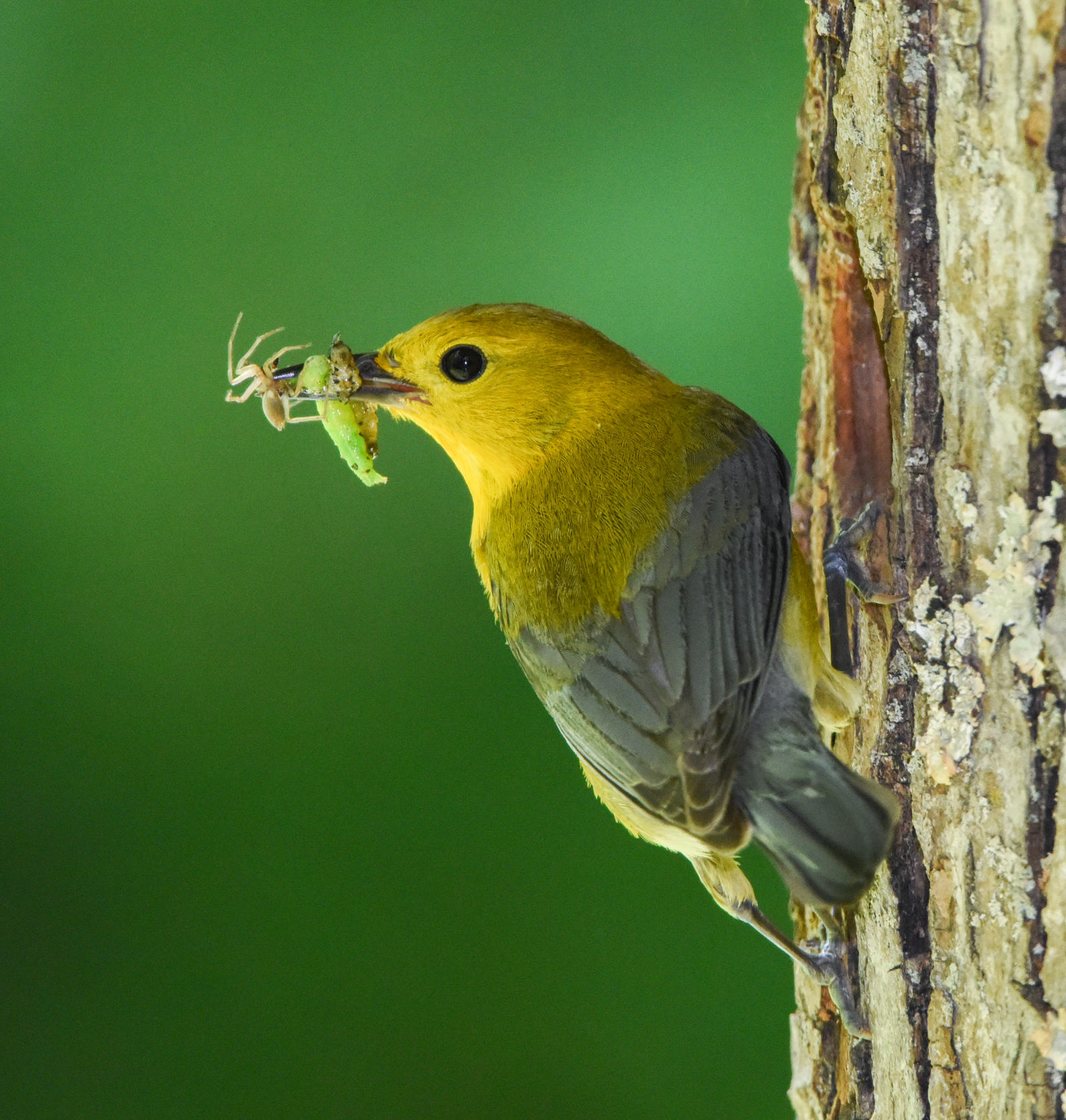
“Did you know that 96 percent of land birds feed insects and spiders to their chicks? A single nest of chickadee babies may scarf down as many as 9,000 caterpillars before they fledge. Native tree species are better for birds because they host many more caterpillars; native oaks support more than 550 kinds of butterflies and moths. Non-native Ginkgo trees? Only five.” said Dr. John Rowden, Director of Community Conservation at National Audubon Society and Plants for Birds program director.
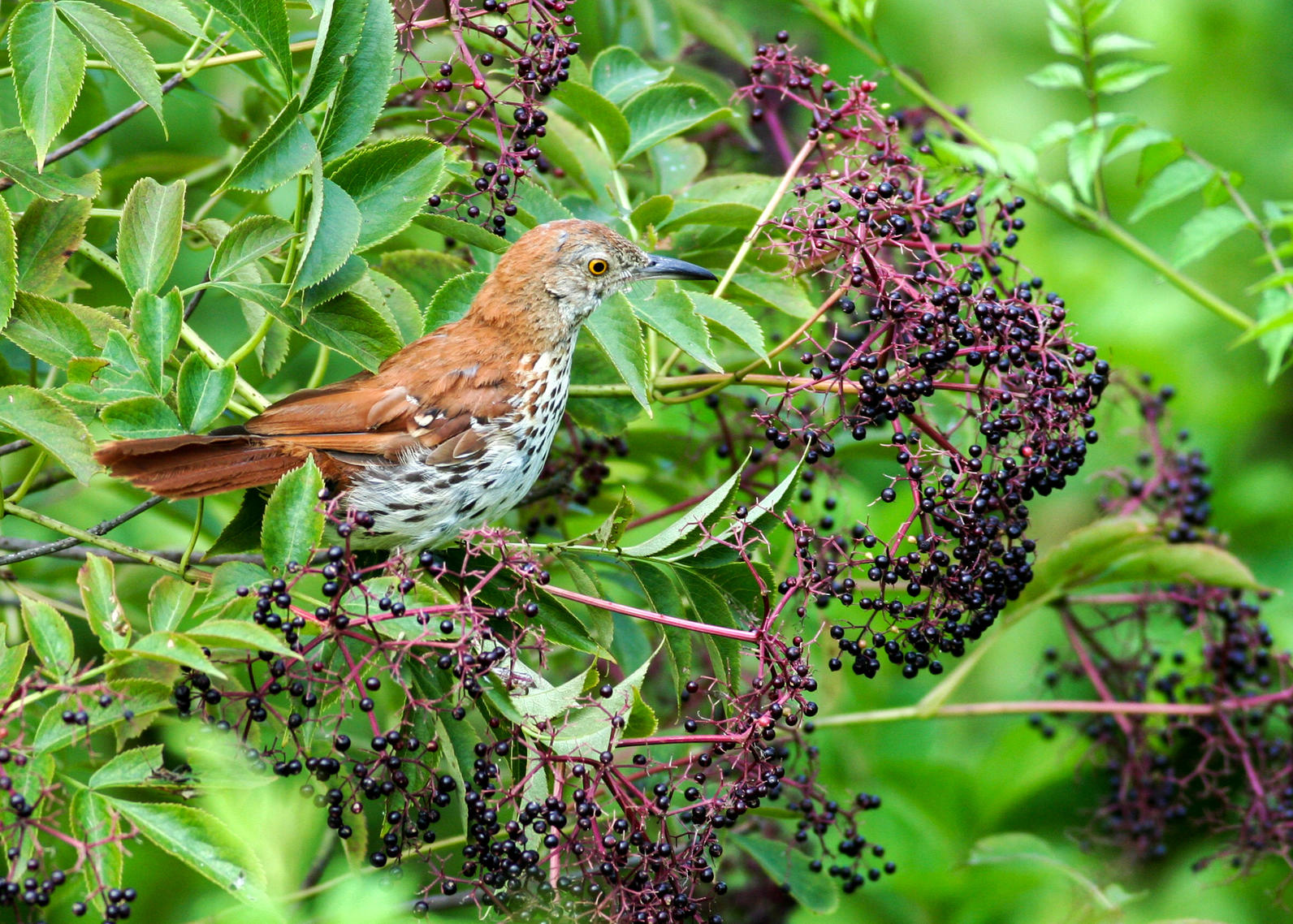
Through Audubon’s Plants for Birds public online database, anyone nationwide can access a list of native plants that benefit their favorite local bird species, by just typing in their zip code.
Gardens are outdoor sanctuaries for birds, insects and other wildlife. Every spring, migrating birds visit our yards looking for nourishment from our gardens and places to raise their chicks. By adding native plants to one’s yard, balcony, container garden, rooftop or public space, anyone, anywhere can not only attract more birds but give them the best chance of survival in the face of climate change and urban development.
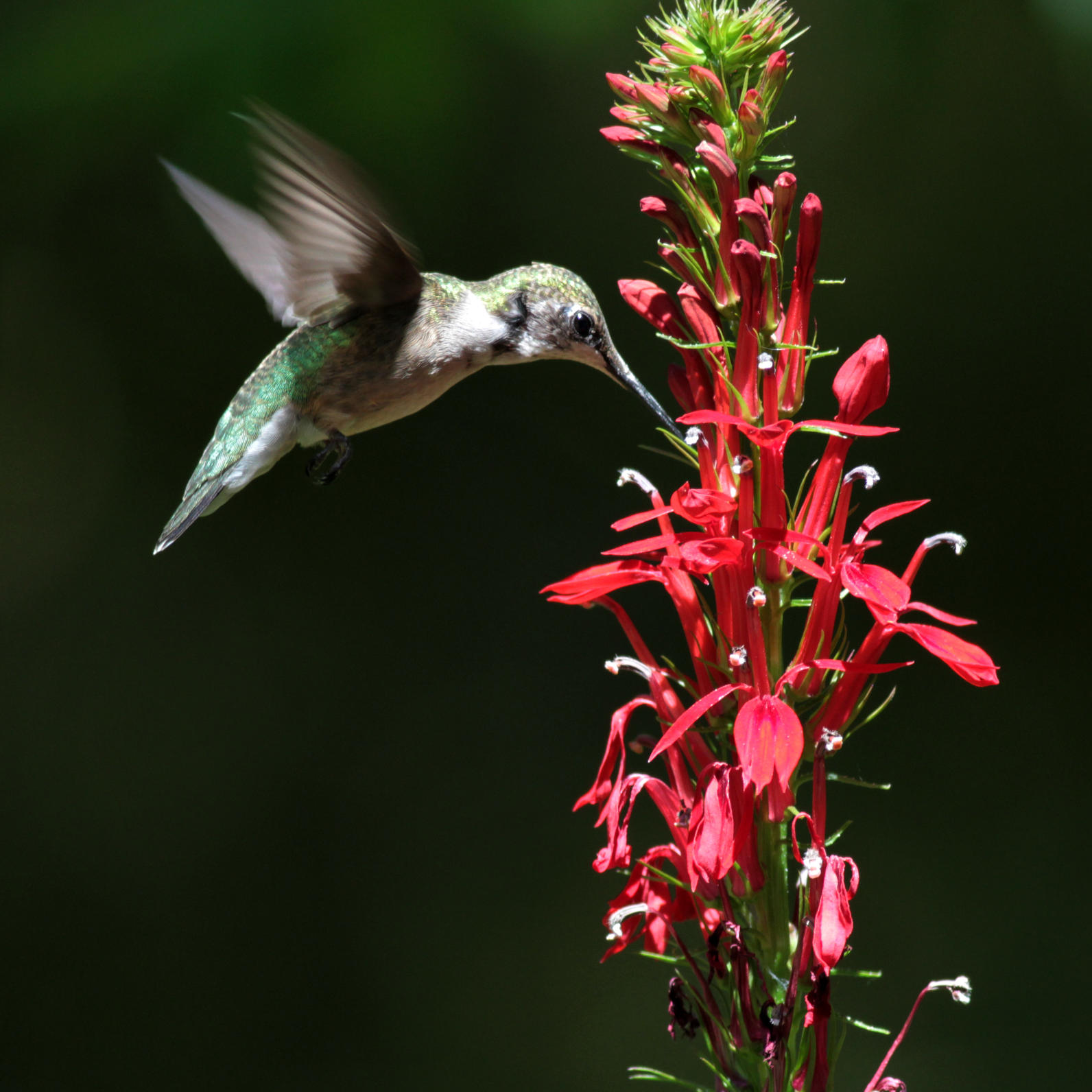
Most landscaping plants available in nurseries are exotic species from other countries. Many are prized for qualities that make them poor food sources for wildlife. They generally also require more chemicals and water to thrive, increasing maintenance time, costs and environmental hazards. Some can even become invasive.
By growing native plants, you can also help protect birds while turning your home into a private wildlife paradise. Keep Vermont’s common birds common with these native plants this spring:
Chickadees and Titmice
- Black-capped Chickadee and Tufted Titmouse
- Attract them With: Birches (Betula spp.) and sumacs (Rhus spp.)
Hummingbirds
- Ruby-throated Hummingbird
- Attract them With: Cardinal-flower (Lobelia cardinalis), penstemons (Pentemon spp.), milkweeds (Asclepias spp.), and jewelweed (Impatiens capensis)
Warblers and Vireos
- Blackburnian Warbler, Black-throated Blue Warbler, Yellow Warbler, Warbling Vireo
- Attract Them With: Oaks (Quercus spp.) and beeches (Fagus spp.)
Woodpeckers
- Downy Woodpecker, Hairy Woodpecker, Northern Flicker, Red-bellied Woodpecker,
- Attract Them With: Pines (Pinus spp.), hickories (Carya spp.), oaks (Quercus spp.), and cherries (Prunus sp.)
If you plant it, the birds will come.
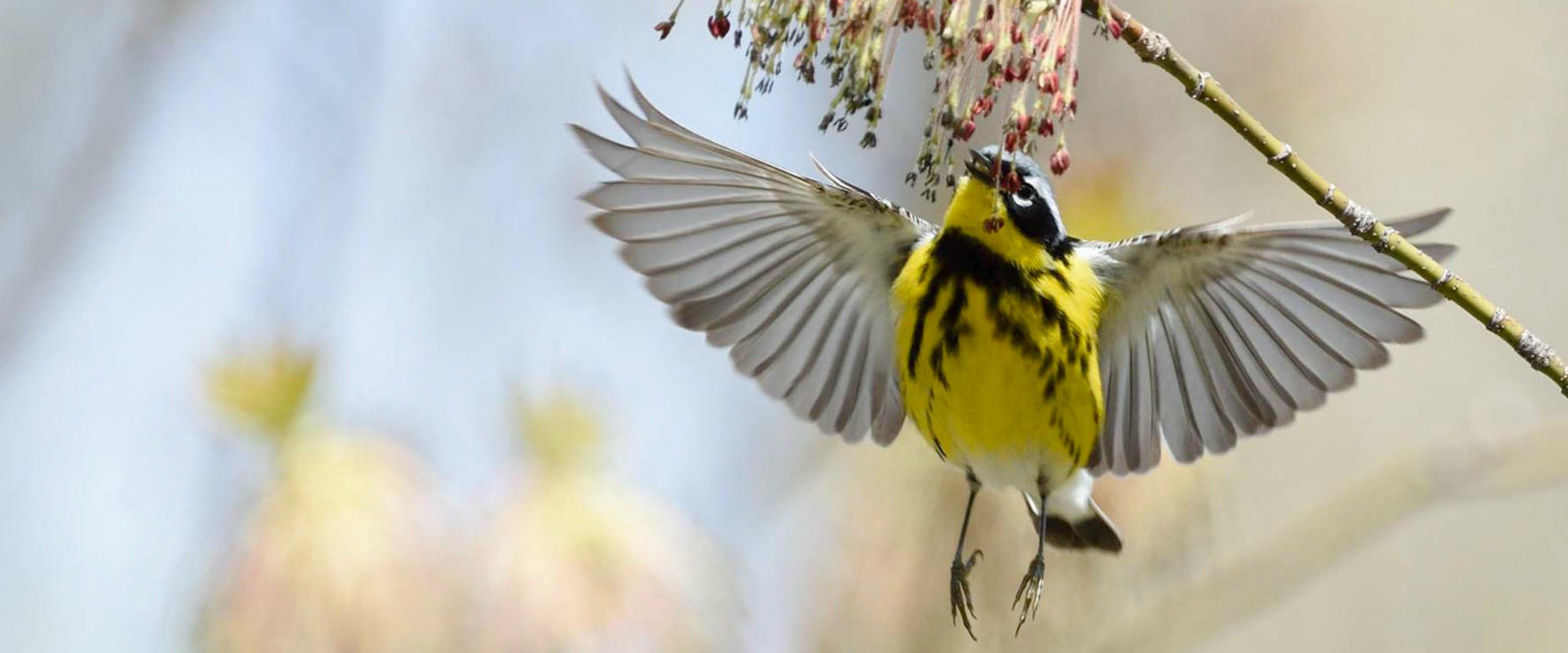
Audubon Vermont can be reached at vt.audubon.org or 802-434-3068 or vermont@audubon.org for anyone seeking more information and where to obtain the right plants.
For extra bird-friendly home tips, gardening DIY’s, and more, visit audubon.org/plantsforbirds
What’s that bird outside your window? Download Audubon’s free app today and get an award-winning field guide at your fingertips, audubon.org/apps
About the grant
The National Audubon Society’s Coleman and Susan Burke Center for Native Plants was established to promote the use of native plants that benefit birds in human communities. The center provides small grants to support Audubon network Plants for Birds activities that will increase the visibility, reach, and impact of Audubon’s Plants for Birds programming across the country.
About Audubon Vermont
Audubon Vermont's Mission is to protect birds, wildlife and their habitat through engaging people of all ages in education, conservation, stewardship and action.
Audubon protects birds and the places they need, today and tomorrow, throughout the Americas using science, advocacy, education and on-the-ground conservation. Audubon's state programs, nature centers, chapters and partners have an unparalleled wingspan that reaches millions of people each year to inform, inspire and unite diverse communities in conservation action. Since 1905, Audubon's vision has been a world in which people and wildlife thrive. Audubon is a nonprofit conservation organization.
Learn more how to help at vt.audubon.org
About Burlington Parks, Recreation & Waterfront
Burlington Parks, Recreation & Waterfront's mission is to connect diverse and dynamic public spaces and programs which grow, inspire and create inclusive social interaction through land, water and people.
- Stewardship of public service and a sustainable environment
- Teamwork/Partnership: commitment to collaboration and coordination with our community and colleagues
- Integrity: Trust developed in doing our work in the public realm
Learn more at https://enjoyburlington.com/
###

